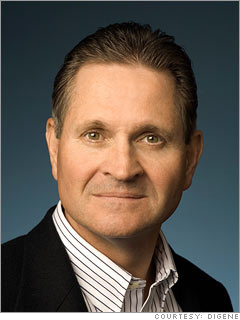No. 26 on Business 2.0's list of the 100 fastest-growing technology companies
Digene gained FDA approval for its HPV test back in 1999, but a recent growth in public awareness has helped get their product into clinics across the country, making the test a $200 million money-maker. CEO Daryl Faulkner, who joined Digene last December, discusses their flagship product and his strategies for growth.
On HPV becoming a hot topic: There's no doubt that your readers almost to the person these days have heard about the human papilloma virus. The HPV vaccine which came out last year drew attention to this virus as a cause of cervical cancer. But the vaccine protects you against just two of the dozens of potentially cancer-causing strains. What used to happen was that a woman would go to her doctor and get a Pap smear. If the test came back abnormal, they would then monitor you closely for six months to see if anything developed. Our test gives better and earlier results. We're the only one on the market that's FDA-approved, and the test has great potential to improve the standard of care and save lives.
On tackling the global market:We sell about 85 percent of our tests in the U.S., and 15 percent overseas, mainly in Europe. In the U.S., the Pap smear is still the standard of care. But in many countries where they don't have an established standard, it is very conceivable that they could start with the HPV test, and if it's positive, do a Pap to follow-up. So I think in many parts of the world the standard of care will be different than it is in the U.S. In the short term, this could be a $1 billion market.
On stopping cervical cancer around the world: There will be 750,000 people with cervical cancer by 2020. Of that 750,000, 639,000 of those are going to be in the developing world. One of things the company has been working on is the solution for testing in parts of the world where they may not have as modern and developed an infrastructure as in the U.S. or Europe. A fast, low-cost test could help eradicate cervical cancer. We're looking to work with several large endowments like the World Health Organization and the Gates Foundation on this.
| |

